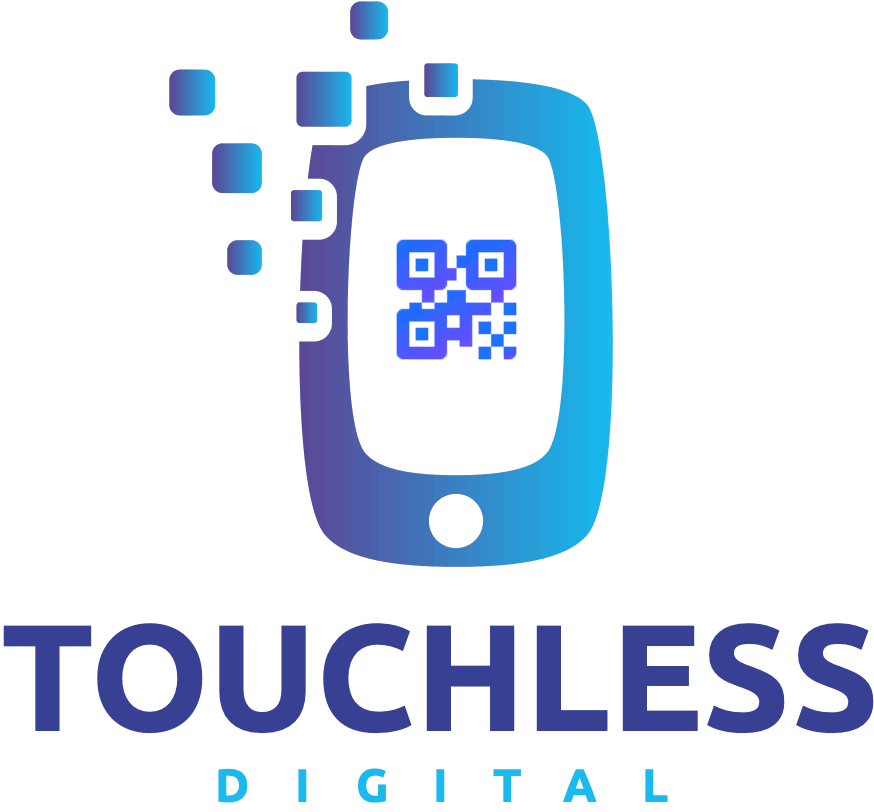What Is Mobile Marketing Platform?
A mobile marketing platform is a comprehensive tool that enables organizations to target and interact with their clients via mobile devices. It provides a diverse set of features and capabilities aimed at improving a company's overall mobile marketing strategy. A mobile marketing platform functions as a central center for managing all parts of a company's mobile marketing strategy.
This includes creating and sending targeted mobile messaging, measuring campaign performance, managing consumer data, and evaluating user behavior to make informed marketing decisions. One of the most important elements of a mobile marketing platform is the ability to produce and send many types of messages, such as SMS, MMS, push notifications, and in-app messaging.
These messages can be tailored based on client information and behavior, resulting in a more focused and personalized approach. Furthermore, a mobile marketing platform enables firms to collect and store customer information such as demographics, preferences, and transactions. This information can then be utilized to create more personalized and relevant campaigns.
Another important feature of a mobile marketing platform is its analytics and reporting capabilities. It gives real-time data on campaign performance, consumer engagement, and user activity, helping organizations to improve their plans and achieve better outcomes. Mobile marketing platforms may provide additional tools and connectors beyond these fundamental functionalities, such as mobile app creation, social media management, and mobile advertising.
When choosing a mobile marketing platform, seek for one that includes all of the necessary features and connectors, as well as a user-friendly interface and dependable customer service. It must also be scalable to allow future business expansion. Businesses may effectively contact and interact with their target audience using the correct mobile marketing platform, resulting in increased conversions and income.
What Are The Recent Trends In Mobile Marketing Platform?
Mobile marketing platforms have evolved in response to the ever-changing digital landscape. With the growing use of smartphones and a change toward a more mobile-centric corporate approach, it is critical for businesses to stay current on the latest trends in mobile marketing platforms.
Here are some of the latest trends that have been influencing the industry:
1. Personalization: Personalized marketing has been the norm in the digital world, and it is no exception for the mobile marketing platform. The capacity to collect and analyze user data has enabled mobile marketing platforms to offer targeted and tailored advertisements and content to the appropriate audience. This trend is expected to continue as more businesses see the value of catering to individual tastes and demands.
2. Augmented Reality (AR) And Virtual Reality (VR): AR and VR technologies have gained popularity in recent years, and mobile marketing platforms have used them to create immersive and interactive user experiences. From customized AR filters to live VR events, these technologies bring a new dimension to mobile advertising and new ways to engage with customers.
3. Artificial Intelligence (AI): AI has become a crucial component of mobile marketing platforms, allowing for tasks like data analysis, audience segmentation, and personalized targeting. It also helps to improve the user experience by offering real-time recommendations and chatbot assistance. As AI advances, we should expect to see more novel use of the technology in mobile marketing.
4. Social Media Integration: With billions of active users across various social media platforms, it's no surprise that mobile marketing platforms are embracing social media integration. This facilitates cross-channel campaigns and targets a larger audience. Social media influencers have also grown in popularity as a mobile marketing channel, with platforms providing tools for connecting with and tracking influencer performance.
5. Omni-Channel Marketing: With consumers using a variety of devices and platforms, marketers understand the value of being present across all channels. Omni-channel marketing attempts to give users a seamless and uniform experience across all touchpoints. As a result, mobile marketing platforms have begun to offer multi-channel capabilities, allowing firms to reach their clients through their preferred channels.
Benefits Of Using Mobile Marketing Platform
As more people rely on their mobile devices for everyday chores, businesses are turning to mobile marketing platforms to reach and engage their target audience. A mobile marketing platform is a software solution that allows firms to build, manage, and track mobile marketing initiatives.
We will look at the advantages of adopting a mobile marketing platform and how it may help your business expand.
1. Reach A Wider Audience: One of the primary advantages of utilizing a mobile marketing platform is the potential to reach a larger audience. With mobile devices becoming the major means of communication for many consumers, businesses must have a mobile presence. A mobile marketing platform allows firms to generate and transmit tailored messages to a broad audience, ensuring that the correct individuals see the message at the right moment.
2. Personalize Your Marketing: Another advantage of employing a mobile marketing platform is the flexibility to tailor your marketing campaigns. Businesses can use customer data and behavior to produce highly targeted, tailored messages that resonate with their target audience. This level of customisation enables firms to develop closer relationships with their customers, resulting in enhanced brand loyalty and conversion rates.
3. Improve Customer Engagement: Mobile marketing platforms also provide a variety of capabilities to increase consumer interaction. These platforms give businesses with the tools they need to engage with their customers in a more engaging and immersive fashion, including push notifications, in-app messaging, location-based targeting, and rich media content. Businesses that keep their customers engaged can enhance brand awareness, build trust, and drive sales.
4. Track And Analyze Campaign Performance: Effective marketing relies on data-driven decision-making, and a mobile marketing platform provides firms with access to vital data and analytics. Businesses can obtain insights into their audience's behavior and preferences by tracking and analyzing campaign performance, allowing them to adjust their ads and achieve better outcomes. This data also enables organizations to make informed judgments about future marketing initiatives.
5. Cost-Effective Solution: A mobile marketing platform is a more cost-effective alternative for organizations of all sizes than traditional marketing tactics such as television, radio, or print. Businesses can increase their marketing budget and return on investment by reaching a larger audience at a lesser cost.
Important Factors To Consider While Purchasing Mobile Marketing Platform?
When thinking about purchasing a mobile marketing platform, there are several important considerations to consider. As a key tool for reaching and connecting with a mobile audience, choosing the correct platform is critical for your company or organization.
To help guide your decision-making process, consider these crucial factors:
1. Target Audience: The first and most significant consideration is your intended audience. Who do you want to reach with your mobile marketing efforts? Different platforms appeal to different demographics and client segments, so understanding your target audience's behavior and interests is critical in choosing the proper platform.
2. Features And Functionality: It's critical to compare the features and functionality provided by various mobile marketing solutions. Some important features to look for are audience segmentation, push notifications, mobile automation, and analytics. Consider your business objectives and which elements are most critical in achieving them.
3. Integration With Existing Systems: Is the mobile marketing platform compatible with your current systems and processes? This is an important issue to consider when avoiding data silos and providing a seamless experience for your team and consumers.
4. Customization And Personalization: Today's consumers expect individualized and relevant experiences, therefore your mobile marketing platform should allow you to tailor messages and campaigns to specific users. Look for platforms with customization possibilities and AI-powered personalization capabilities.
5. Scalability: As your company grows and evolves, so will your mobile marketing requirements. When assessing platforms, think about their scalability and how they might support your company's future growth.
6. Security And Data Privacy: Given the growing concern about data privacy, it's critical to select a mobile marketing platform that prioritizes security and compliance with relevant regulations, such as GDPR and CCPA.
7. User-Friendly Interface: A mobile marketing platform should be simple to use and navigate for both the marketing team and your target audience. Look for systems with an easy-to-use UI and minimal technical skills necessary.
8. Customer Support: In the event of a technical difficulty or inquiry, it is critical to have dependable customer service from the platform supplier. Look for platforms that provide 24-hour support and have a reputation for prompt and friendly assistance. By taking these variables into account, you can make an informed decision about which mobile marketing platform is most suited to your company's needs and goals. Remember to thoroughly research and demo different platforms before making a final decision to guarantee you get the best return on investment.
What Are The Key Features To Look For In Mobile Marketing Platform?
When looking for a mobile marketing platform, several critical qualities are required for success.
As a buyer, you should extensively investigate and analyze these qualities before making a decision.
1. Multi-Channel Capabilities: The finest mobile marketing platforms enable you to reach customers via a variety of channels, including SMS, push notifications, email, and social media. This enables a more integrated and complete marketing approach.
2. Segmenting And Targeting Options: Look for a platform that allows you to segment your target audience by location, demographics, interests, and activity. This allows you to personalize your campaigns and target the appropriate demographic for maximum impact.
3. Automation And Scheduling: A strong mobile marketing platform should provide automation and scheduling capabilities, allowing you to plan and execute campaigns ahead of time. This not only saves time but also assures that messages are delivered on time and with consistency.
4. Statistics And Reporting: Choose a platform that offers thorough statistics and reporting on the performance of your campaigns. This will allow you to track your progress, discover areas for development, and make data-driven decisions about future efforts.
5. Personalization And Customization: Personalization is essential in mobile marketing, and a strong platform should provide choices for customizing messages and campaigns depending on individual client preferences. This creates a more meaningful and engaging engagement with your viewers.
6. Integration With Other Tools: Choose a platform that works with other marketing and analytics solutions you may already be using. This will streamline your procedures and provide a more complete picture of your marketing efforts.
7. Geolocation Targeting: For firms with a local or regional focus, geolocation targeting is an important option to consider. This enables you to target clients in specific locations and tailor your messages to their location.
8. A/B Testing: A decent mobile marketing platform should include A/B testing, which allows you to test numerous campaign versions to discover the most effective plan. This helps to optimize your campaigns for better outcomes.
9. Scalability And Flexibility: As your company develops and evolves, you may need to expand your mobile marketing efforts. Look for a platform with scalability and flexibility, so you can add new features and grow your campaigns as needed.
10. Ease Of Use: Finally, examine how user-friendly the platform is. It should be simple to find and use, with a clear and intuitive interface. This will make it easier for you and your team to manage and execute campaigns successfully.
How Much Time Is Required To Implement Mobile Marketing Platform?
The time required to implement a mobile marketing platform varies according to the platform's complexity and capabilities, as well as the resources and skill sets available inside the organization. The implementation procedure can last anything from a few weeks to many months. The first step in adopting a mobile marketing platform is to identify your goals and objectives.
This includes identifying your target audience, analyzing their tastes and activities, and articulating the goals of your mobile marketing campaigns. Once you've determined your goals, the following step is to compare the various mobile marketing platforms on the market. It is essential that you pick a platform with a user-friendly design, customisable capabilities, and a comprehensive analytics system to track the effectiveness of your ads.
After picking a platform, the implementation process can be divided into four stages: planning, implementation, testing, and launch. During the planning phase, a project team should be formed to oversee the implementation process, including assigning roles and establishing timetables. The implementation step entails establishing the platform, integrating it with other systems, and developing marketing.
This phase can take the most time, depending on the platform's complexity and the quantity of campaigns to be generated. Next, the testing process is critical to ensuring that the platform is operational and campaigns are optimized to reach the required results. This phase might last from a few weeks to many months, depending on the amount of tests and iterations required. Finally, the launch step entails introducing the platform and campaigns to the intended audience.
Once launched, it is critical to monitor platform and campaign success and make any necessary changes to improve results. Overall, the time required to implement a mobile marketing platform will vary depending on several factors, but with proper planning, a dedicated team, and a user-friendly platform, the process can be streamlined to ensure a successful and timely implementation. It is recommended that you collaborate closely with the platform provider and use their support services to guarantee a smooth and efficient implementation process.
What Is The Level Of Customization Available In Mobile Marketing Platform?
Mobile marketing systems provide a variety of customisation possibilities to meet the specific demands and preferences of businesses. The degree of customization available varies based on the unique platform and its capabilities, but here are some common ways in which these platforms can be tailored for effective marketing efforts.
1. Targeting Audience Segments: With a mobile marketing platform, you can segment your audience based on demographics, interests, and activity. This not only helps you reach the correct people, but it also allows you to personalize your messaging and content to their interests.
2. Individualized Communications: Mobile marketing solutions, with advanced capabilities like dynamic content and personalization tags, allow firms to send individualized messages to their customers. This not only improves the consumer experience, but also raises engagement and conversion rates.
3. Customized Marketing: Businesses can design tailored campaigns to target specific customer segments or achieve specific objectives. These campaigns can contain a variety of messages, channels, and timings, allowing organizations to experiment and optimize their marketing strategies.
4. Branded Content: Many mobile marketing systems enable firms to incorporate their branding components, such as logos, colors, and fonts, into their messaging and campaigns. This helps to ensure brand consistency and familiarity across several channels and touchpoints.
5. Integration With Other Products: Mobile marketing platforms can be integrated with other tools and software, including as CRM systems, analytics platforms, and social media management tools, to provide even more customisation. This enables organizations to collect additional data and insights and utilize them to tailor their marketing tactics.
Which Industries Can Benefit The Most From Mobile Marketing Platform?
Mobile marketing platforms are an effective tool for firms who want to reach their target audience and increase conversions. With the surge of smartphone usage and the growing relevance of mobile in customers' lives, incorporating a mobile marketing strategy has become a must for businesses across multiple industries. However, certain sectors may profit even more from employing a mobile marketing platform.
We'll look at which sectors can gain the most from adopting a mobile marketing platform into their marketing plan.
1. E-commerce And Retail: The retail industry has fully adopted mobile marketing, capitalizing on consumers' demand for mobile shopping experiences. Mobile marketing solutions include a variety of capabilities, including push notifications, personalized messaging, and location-based targeting, which can assist e-commerce and retail enterprises in increasing sales, customer loyalty, and overall customer experience.
2. Travel And Hotel: In recent years, there has been a substantial movement in the travel and hotel industry toward mobile marketing. With an increasing number of consumers utilizing mobile devices to plan and book their travel arrangements, mobile marketing platforms are an efficient channel for targeting and engaging with these potential customers. Mobile marketing solutions may help organizations in this area stay connected with their customers by providing personalized offers and promotions, as well as real-time updates.
3. Food & Beverage: Mobile marketing platforms are transforming the food and beverage industry, especially for restaurants, cafes, and other food-related enterprises. With capabilities such as SMS marketing, smartphone loyalty programs, and mobile ordering, these platforms enable businesses to stay top of mind with their customers and increase foot traffic to their locations.
4. Healthcare: The healthcare industry may not be the first to spring to mind when considering mobile marketing, but it has enormous promise in this field. Mobile marketing systems can be used to send appointment reminders, health recommendations, and other pertinent information to patients, increasing their engagement and happiness. Furthermore, mobile marketing can improve communication between healthcare providers and patients, resulting in better patient outcomes.
5. Financial Services: As consumers increasingly rely on mobile devices for banking and financial transactions, the financial services industry may use mobile marketing platforms to reach them exactly where they are. Mobile marketing can be used to promote new financial products and services, provide account updates, and deliver tailored offers and discounts to customers, all of which can contribute to increased engagement and customer retention.
Conclusion
Finally, selecting the correct mobile marketing platform is critical to the success of your organization. By now, you have a thorough idea of what a mobile marketing platform is, its benefits, and the main elements to consider when making a decision. When choosing a mobile marketing platform, thoroughly consider your business's needs, budget, and goals.
Look for a platform that includes a variety of capabilities including segmentation, automation, personalization, and analytics, as well as an easy-to-use interface and outstanding customer service. Also, assess the platform's scalability and integration capabilities to guarantee it can expand with your company and interface effortlessly with your existing systems.
Remember to read reviews, ask for advice, and test out demos before making a final decision. By assessing all of these elements and keeping your individual needs in mind, you can confidently select the ideal mobile marketing platform to help you effectively reach and engage your target audience, increase conversions, and drive overall business growth.






















